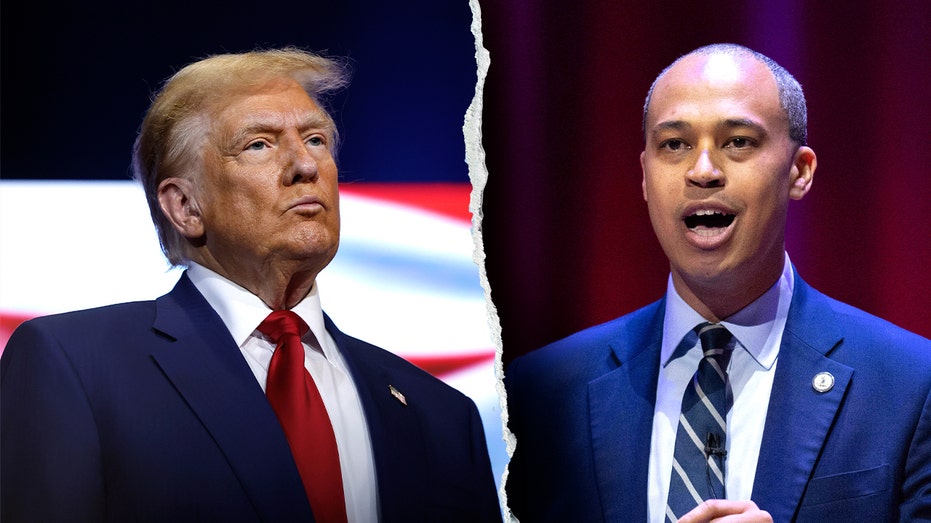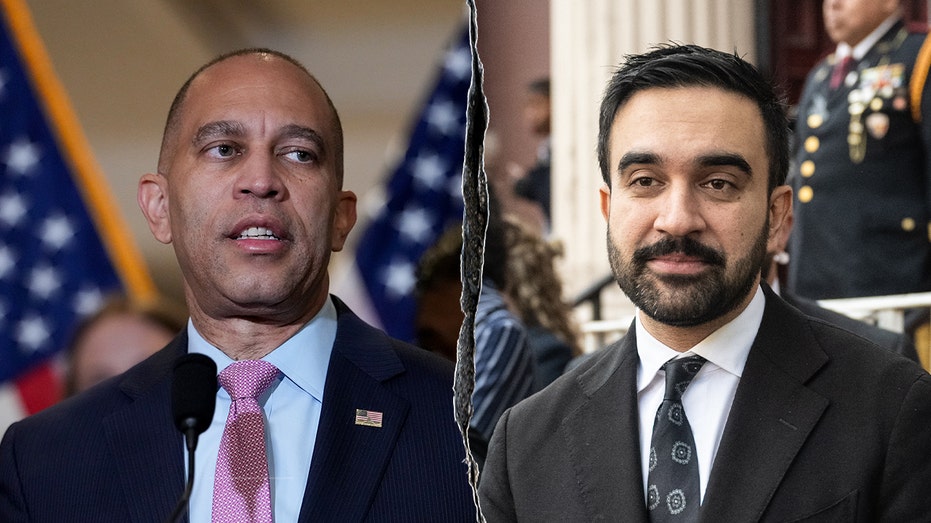A seismic shift rippled through Virginia politics, leaving many stunned and deeply disturbed. The election of Jay Jones as Attorney General, alongside a Democratic surge, wasn’t celebrated as a victory for policy, but viewed by many as a chilling signal about the state of American discourse.
The outcome defied expectations, with voters seemingly dismissing deeply troubling revelations about Jones’ past. Disturbing rhetoric, including explicit contemplations of violence against political opponents and their families, failed to derail his ascent to power. The question now hangs heavy: what does it say about the electorate when such statements are seemingly overlooked?
Outkick founder Clay Travis pointed to a singular, driving force: animosity towards former President Trump. He argued that the sheer intensity of anti-Trump sentiment motivated voters to overlook serious concerns about Jones’ character and past statements, effectively prioritizing political opposition over fundamental decency.
The results weren’t isolated to the Attorney General’s race. Governor-elect Abigail Spanberger secured a win, but with a striking disparity – receiving 600,000 fewer votes than Trump did in his previous Virginia bid. This highlighted a critical pattern: Republican turnout falters significantly when Trump isn’t on the ballot, particularly in traditionally conservative areas.
The reaction was swift and visceral. Commentators and citizens alike expressed a profound sense of unease, with some voicing outright fear. One Virginia voter, seeing Jones signs displayed by neighbors, confessed to a chilling realization: they were potentially considered acceptable targets for political violence.
The accusations weren’t limited to concerns about voter motivations. Rep. Brandon Gill, R-Texas, condemned the election as further proof of the left’s indifference to political violence, drawing a stark parallel to previous incidents and the celebration of aggression. Others echoed this sentiment, labeling the outcome “demonic” and “truly evil.”
Conservative voices painted a grim picture, suggesting a dangerous precedent had been set. The election of Jones, they argued, signaled an acceptance – even an endorsement – of violent rhetoric as a legitimate political tool. The fear wasn’t simply about Jones himself, but about the message his victory sent to those harboring extremist views.
The debate wasn’t confined to accusations and anxieties. Some on the left attempted to deflect, focusing on Republican governance and perceived failures. State Sen. Mamie Locke argued the Democratic wins were a rejection of Trump’s policies and a testament to the party’s commitment to social programs.
However, this explanation did little to quell the growing sense of alarm. For many, the core issue remained the willingness to overlook deeply disturbing statements in the pursuit of political power. The election in Virginia wasn’t just a change in leadership; it felt like a disturbing turning point, leaving many to wonder what the future holds.
Even seemingly minor incidents took on a heightened significance. A clip of Jones appearing to playfully kick at a dog was repurposed by a Democratic state senator, digitally altered to depict him “kicking” the opposing Attorney General, Jason Miyares, into the sky – a symbolic act that amplified the sense of hostility and disregard for political opponents.
The aftermath of the election left a lingering question: has a line been crossed? Has the intensity of political polarization reached a point where even explicit threats of violence are deemed acceptable collateral damage in the pursuit of victory? The answers, for now, remain elusive, shrouded in fear and uncertainty.


![NATION IN CRISIS: Victor's SHOCKING Warning About Life Itself! [VIDEO]](https://www.thegatewaypundit.com/wp-content/uploads/2025/11/victor-reacts-42-1200x630.png)


![Sotomayor EXPLODES: Brutal On-Air TAKEDOWN of Top DOJ Lawyer! [LISTEN NOW]](https://www.thegatewaypundit.com/wp-content/uploads/2025/11/img_9977-1200x630.jpg)
